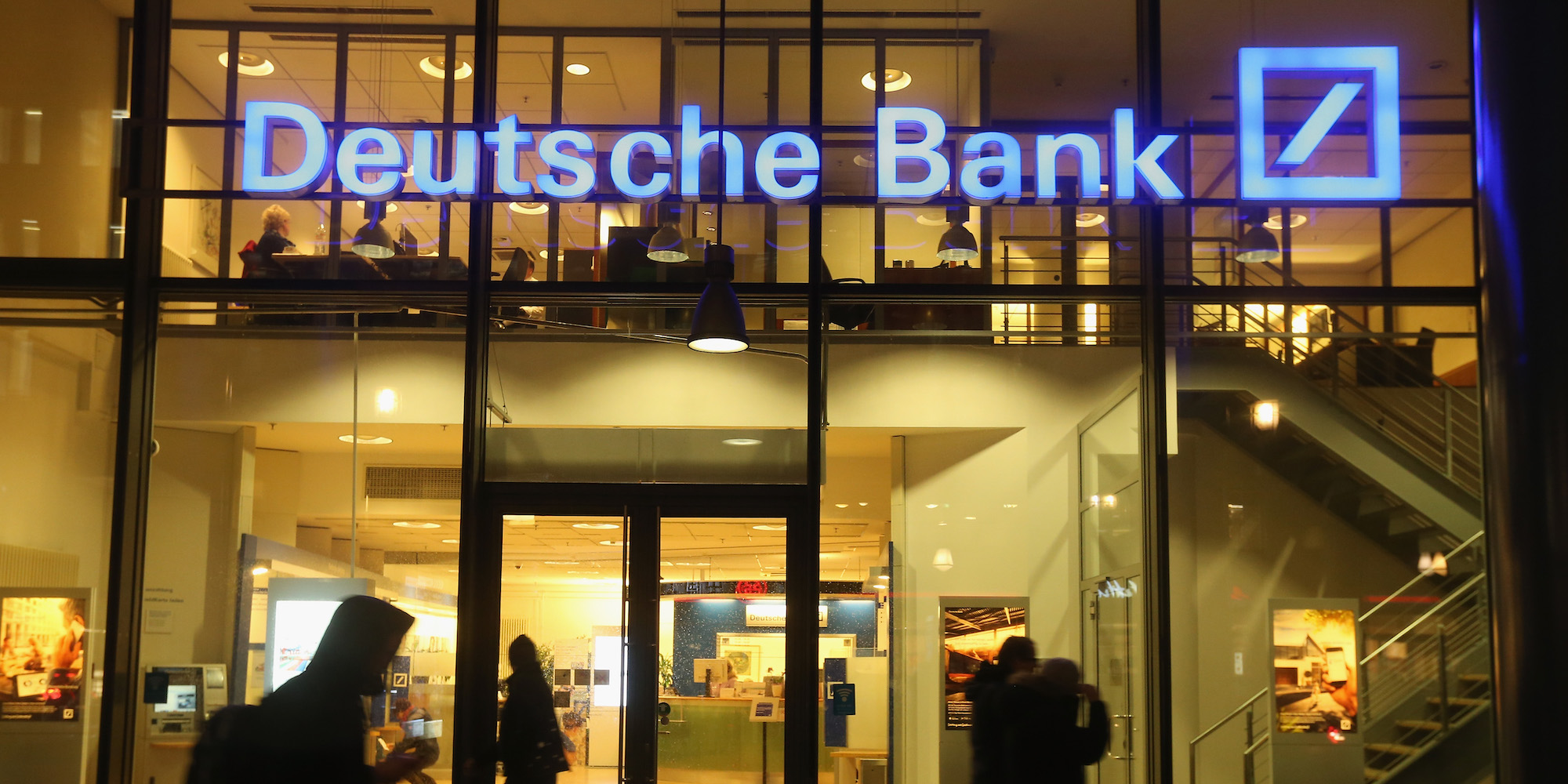- Before the pandemic, Deutsche Bank only had a few thousand employees that worked from home. Once stay-at-home orders began, the company had to find a way to move many more to remote work.
- As they moved, so did their clients. To help them, they created new ways for their clients to bank digitally with digitized documents and more security measures.
- Remote work came with learning curves, so the bank is encouraging its employees to find a balance between work and life under these new circumstances.
- Visit Business Insider’s homepage for more stories.
Before the pandemic, Deutsche Bank had a few thousand people working from home globally, out of a workforce of around 90,000. But the shift to remote working has meant its systems and procedures had to be adapted to support 60,000 to 70,000 people working from home at the same time, and globally.
Much of the shift started in Asia, where businesses were first hit by the outbreak. Stuart Gurr, group chief information officer for the Asia-Pacific (APAC) region has been working since the start of the year ensuring the area’s 25,000 staff are able to work from home.
“Unlike big tech companies, remote working hasn’t traditionally been in our core DNA,” Gurr said. “We had to scale our remote access capabilities quickly so people could work from home.” Deutsche Bank has supported staff by buying devices and tools that enable working from home. In February and Match, the company purchased 4,000 laptops.
The nature of the business requires a more intricate setup. The bank’s team has given employees guidance on how to create an effective workspace, and to ensure sensitive information is protected by using headsets so anyone at home can’t hear conversations.
The staff is also advised to use ethernet rather than WiFi connections to provide a more stable internet connection.
Video conferencing isn't new for Deutsche Bank, but it did have to roll out 50,000 profiles in less than two weeks.
"This is our new business as usual," Gurr said. "The whole digital workplace will change forever."
He also said there are people returning to offices in areas such as China but added there is no pressure to do so, due to the newly established strong remote working capability.
A new way of banking: digitizing documents
Deutsche Bank's cash management business handles billions of dollars for corporate and financial institution clients and has quickly moved from a predominantly paper and office-based service to a fully-functioning digital one.
"In normal circumstances, we would take care of a lot of document exchanges by post and there would be meetings with clients locally," Dennis De-Weerdt, global head of implementations and service for Deutsche Bank, said.
"We had to find ways in a matter of days to get payment instructions and legal changes to documentation into a digital environment that was legally viable, client-centric, and secure. We were already rolling out a digital DocuSign service but this has now been implemented faster."
Documents can be signed and altered digitally and clients can monitor high-value transactions from end-to-end.
There are also security measures to verify who a client is so they don't fall victim to fraud. And many of these changes will now be permanent even after the pandemic.
Encouraging a work-life balance
Tiina Lee, chief executive of Deutsche Bank in the UK and Ireland, said the firm has always been a strong advocate of flexible working and dedicated a whole month to promoting it in February - before the pandemic materially hit the UK.
Now 95%, or 8,000 UK staff, are working from home.
"In the early days there were some challenges because so many started to work from home in a short period," Lee said. "We were somewhat ahead of the curve here because we moved to split operations two weeks before full lockdown which gave us the opportunity to iron out the kinks. I was impressed by how our IT team increased our server capacity so people could work from home."
She said most of the hurdles were around sales and trading operations, which require more technology, equipment, and the ability to access markets on a regular basis.
The bank has ensured traders have the right equipment such as screens, cables, and laptops. In some cases, they've shipped these things directly from the office.
Employees have regular one-on-ones with managers and there's been a big push for well-being and mental health, with regular meditation sessions and tips on homeschooling and maintaining a work-life balance.
